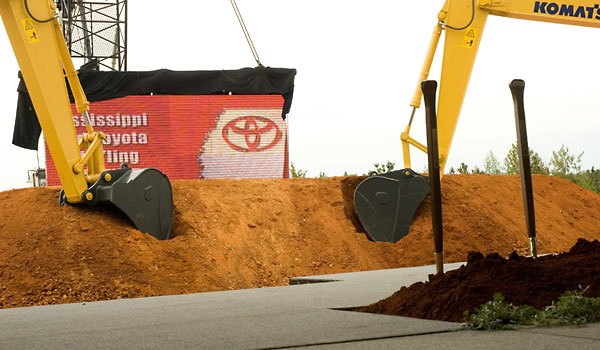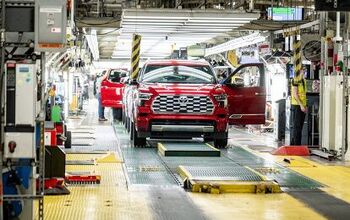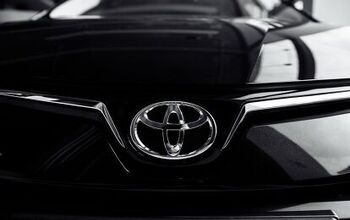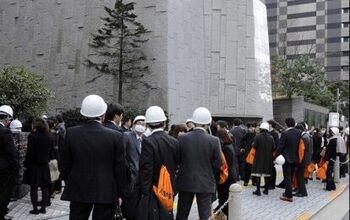Planting Season At Toyota

Toyota had slammed hard on the brake when it came to capital expenditures. So hard that ToMoCo (and Sony) were rapped on the knuckles by the Japanese Ministry of Finance for hobbling Japan’s economy. Suddenly, Toyota starts pouring concrete and installing machinery again. Not because of newfound faith in the auto market in general. Two factors made them do it: The Yen has become so expensive that manufacturing in the USA is cheaper. And China is gobbling up cars faster than Toyota can make them.
According to the Nikkei [sub], a Toyota plant in the US and one in China will increase ToMoCo’s annual output capacity by 200,000 units before the Japanese 2010 fiscal ends on March 31, 2001. The construction will cost Toyota a little over $1b, depending on the vagaries of the greenback and its pegged follower, the Chinese Yuan. Here are the blueprints:
In China, Toyota will re-start a likewise suspended joint-venture plant with China’s FAW in Changchun. Toyota is manufacturing a total of 10,000 vehicles a year at another joint-venture plant in Changchun. Not enough for the voracious Chinese market. The new facility is expected to have an annual output capacity of 100,000 units. No decision yet what exactly will be built there.
The Nikkei pegs Toyota’s global annual production capacity at roughly 10 million units. With the group’s worldwide sales forecast slightly above 7 million units in 2009, there is way too much excess capacity.
Toyota plans to cull capacity by 1 million units before March 31 2010 by suspending some production lines in Japan and the U.K. Win some, lose some.

Bertel Schmitt comes back to journalism after taking a 35 year break in advertising and marketing. He ran and owned advertising agencies in Duesseldorf, Germany, and New York City. Volkswagen A.G. was Bertel's most important corporate account. Schmitt's advertising and marketing career touched many corners of the industry with a special focus on automotive products and services. Since 2004, he lives in Japan and China with his wife <a href="http://www.tomokoandbertel.com"> Tomoko </a>. Bertel Schmitt is a founding board member of the <a href="http://www.offshoresuperseries.com"> Offshore Super Series </a>, an American offshore powerboat racing organization. He is co-owner of the racing team Typhoon.
More by Bertel Schmitt
Latest Car Reviews
Read moreLatest Product Reviews
Read moreRecent Comments
- OA5599 Been there, done that--Fordlandia.
- MaintenanceCosts I love urban condos, but the idea of sharing an association with 50 Aston owners makes me break out in hives.
- MaintenanceCosts My dad had a closely related, but much less cool, Corolla Liftback of the same vintage when I was born. Typical of a Toyota, it was the low-drama car in the household, compared to mom's backfire-prone and fussy RX-3 wagon. Both cars got sold when we moved overseas in 1981, but neither parent had the sense to buy something low-drama again for quite a few more years.
- MaintenanceCosts When they target one specific plant well outside of contract negotiation time, you know it's bad.Even if you distrust unions, ask yourself whether an individual whistleblower could have made any difference here without the union backing him up.
- FreedMike IIRC, weren't '70s Japanese cars prone to rust?


































Comments
Join the conversation
Somehow ironic that the response to being singled out for damaging the Japanese economy is a response of adding foreign capacity so as to offshore production (with a presumed loss of Japanese jobs).
100k Corollas in Mississippi isn’t going to cut it. The last 12 months, and they were not pretty, Toyota sold over 360k Corolla/Matrix in North America. The current sales numbers, still terribly depressed point to about 400k adjusted sales figure. Cambridge can only make about 230k. Making the rest in Japan doesn't work either: the high yen, custom duties and shipping costs will make the meager profit of $1500/car quickly disappear.